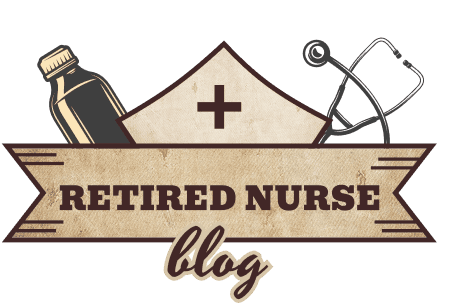Is Skipping Breakfast Bad for You?

Introduction to the Breakfast Debate
The importance of breakfast has been widely debated over the years. In many cultures, it's often referred to as the "most important meal of the day." The traditional idea behind this is that breakfast helps fuel the body after a long period of fasting overnight. But with growing popularity around intermittent fasting and various diet trends, skipping breakfast has become more common. So, which is right for you - eating breakfast or skipping it?
There’s no single answer, and the truth is that it depends on your body, your schedule, and your personal health goals. This article dives into both sides of the breakfast debate and gives you the tools to understand how skipping breakfast could be either beneficial or harmful for you, depending on your individual needs.
The Case for Breakfast: Why It Works for Some People
-
Boosting Metabolism:
Breakfast helps "break the fast" after a long night’s sleep, revving up your metabolism. Eating breakfast signals to your body that it's time to start using energy for the day. This can help your body digest food more effectively and keep your energy levels steady throughout the day. In the morning, your metabolism is naturally slow, and food acts like a jumpstart, especially with a meal that’s rich in protein and healthy fats. -
Energy and Focus:
After 7–8 hours of fasting during sleep, the body needs fuel to perform well. Protein-rich breakfasts such as eggs, Greek yogurt, or smoothies with protein powder can help provide lasting energy. Breakfast can also aid in mental clarity, supporting your focus and productivity through the morning. Without breakfast, some individuals report feeling sluggish or experiencing brain fog, making it harder to focus on tasks. -
Weight Management:
While skipping breakfast might seem like an easy way to reduce calorie intake, research shows that people who eat a healthy breakfast tend to have better control over their weight. Eating a meal in the morning helps regulate hunger hormones, keeping you from feeling overly hungry and overeating at lunch or dinner. A well-balanced breakfast that includes protein and fiber can keep you feeling satisfied until your next meal.
Quick Breakfast Options:
- Oatmeal with almonds and berries: High in fiber and antioxidants, and easy to make in the morning.
- Avocado toast with a boiled egg: Healthy fats, protein, and fiber all in one meal.
- Greek yogurt with chia seeds and fruit: Protein-packed with a dose of omega-3s and fiber to keep you full longer.

The Case Against Breakfast: Why Skipping Can Be Beneficial
-
Intermittent Fasting Benefits:
Intermittent fasting (IF) is a practice where you restrict your eating window, often skipping breakfast to extend the fasting period. Some people find this helps them feel more alert and energized throughout the day. Research shows that fasting can help improve insulin sensitivity, lower inflammation, and promote fat burning. Intermittent fasting also helps some people reduce overall calorie intake, as they naturally end up eating fewer meals. -
Not Everyone Needs Breakfast:
While breakfast is beneficial for many, some people simply don’t feel hungry in the morning. If you wake up and don’t feel like eating, there’s no harm in skipping breakfast - as long as you’re eating balanced meals later in the day. For some individuals, eating in the morning might make them feel sluggish, bloated, or mentally foggy. Skipping breakfast gives them the flexibility to listen to their bodies and eat when they’re truly hungry. -
Focus on Overall Diet:
Skipping breakfast isn’t inherently bad, as long as your overall nutritional intake is balanced. It’s important to focus on eating whole, nutrient-dense foods throughout the day, rather than stressing over breakfast. A nutrient-rich lunch and dinner, combined with healthy snacks, can provide the necessary vitamins, minerals, and energy needed to stay healthy.

When Skipping Breakfast Might Not Be Right for You
-
If You’re Active in the Morning:
If you have a busy morning workout routine, skipping breakfast can leave you feeling weak or low on energy. A light breakfast with protein and complex carbs, such as peanut butter on whole-grain toast or a smoothie, can help fuel your workout and aid in muscle recovery afterward. -
If You Struggle with Blood Sugar Regulation:
Skipping breakfast can be detrimental if you have conditions like diabetes or hypoglycemia. These conditions require regular food intake to stabilize blood sugar levels. Skipping breakfast may lead to low blood sugar episodes, which can result in dizziness, fatigue, irritability, and difficulty concentrating. -
If You're a Teenager or Growing Child:
For children and adolescents, breakfast is essential for maintaining their growing bodies’ energy levels and providing the nutrients they need for physical and mental development. Skipping breakfast during these years could lead to poor concentration, fatigue, and sluggishness, affecting school performance and overall health.
Voice Block: Real-Life Story of Amanda’s Patient
One of my patients, Sarah, came to me for weight loss advice. She had been skipping breakfast for months, believing it would help her cut calories. However, she was struggling with intense cravings and overeating at night. After a quick discussion, I suggested she try adding a protein-rich breakfast, like a simple egg and veggie scramble, or Greek yogurt with fruit and nuts. Within a week, Sarah reported feeling more energized and noticed that her cravings had decreased. By eating a nutrient-dense breakfast, she was able to manage her hunger and stick to healthier meals throughout the day. Her energy improved, and she began to feel more in control of her eating habits.
Conclusion
In the debate of whether skipping breakfast is good or bad, there is no universal answer. It depends on your lifestyle, activity level, and personal preferences. If you feel better and more energized after eating breakfast, it can provide you with the necessary fuel for the day. But if you feel sluggish or prefer a fasting routine, skipping breakfast might work better for you.
The key takeaway is to listen to your body and make food choices that align with your unique needs. If breakfast works for you, aim for a well-balanced meal that keeps you full and satisfied. If not, focus on ensuring your other meals throughout the day are nutrient-dense.
The Bottom Line
Breakfast is important for many people, but it’s not a requirement for everyone. If you feel better with breakfast, make it a healthy, balanced one. If not, listen to your body and skip it - just make sure you’re still fueling your body with healthy, whole foods throughout the day.




